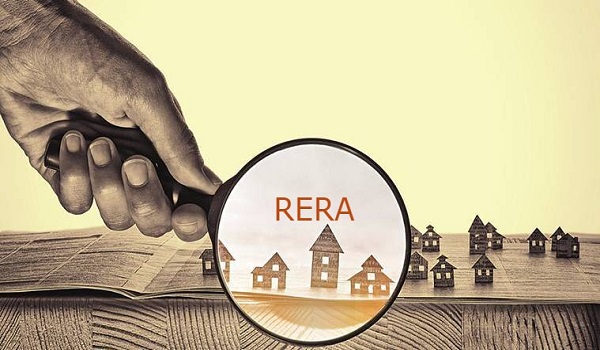How to Transfer of Property After Death Without Will in India

Introduction:
Dealing with the death of a loved one is emotionally challenging, and managing the legal formalities that follow often proves to be emotionally overwhelming —especially when a passed loved one fails to make a will; this condition is referred to as intestacy. Learn the step-by-step process to transfer of property after death without will in India, helping the legal heirs to know their rights and navigate the process efficiently.
1. Understand What Dying Intestate Means
Because most people do not have a will, when a person passes away, their estate is divided according to succession laws in their state. This means:
There is no particular beneficiary has been named
Legal heirs must claim rights under the personal succession laws:
Hindus, Sikhs, Jains, Buddhists: Hindu Succession Act 1956
Muslims: Islamic (Sharia) Law
Christians, Jews, Parsis: Indian Succession Act of 1925
2. Identify Legal Heirs
The immediate question regarding the transfer of property after death without will in India can be understood by reading this blog. This process may vary according to the religion and family of the deceased. Whether you're managing inheritance or searching for a flat for sale in Rajkot, understanding property laws is essential.
Hindus (including Sikhs, Jains, and Buddhists):
Legal Heirs are classified as per the Hindu Succession Act 1956:
Class I heirs (first preference):
Spouse (widow/widower)
Sons and daughters (including by adoption)
Mother of the deceased
In the absence of class I heirs, the class II heirs (father, brothers, and nephews) take the property.
Muslims:
Property is divided according to Sharia law, which defines fixed shares for:
Spouse
Children
Parents
Other blood Relatives (depending on Sunni or Shia sect)
Christians:
The property intestate divides under the Indian Succession Act of 1925:
One-third of the spouse
Two-thirds of the children
If there are no kids, the spouse gets 50%, and the balance is shared with parents/siblings
3. Obtain a Legal Heir Certificate or Succession Certificate
To claim rights over the deceased's property, the legal heirs must obtain either a Legal Heir Certificate or a Succession Certificate, depending on the circumstances.
Legal Heir Certificate
Issued by: Tehsildar/Revenue officer of the local district
Function: Establishes relationship with deceased, used for:
Pension claims
Bank accounts
Utility connections
Property mutation (sometimes)
How to Apply:
1. Apply with:
Death certificate
Proof of identity/address of the applicant
Details of all heirs
2. Authorities will verify and issue the certificate within 15–30 days.
Succession Certificate
Issued by: District Civil Court
Purpose: To claim movable assets like:
Bank accounts
Insurance
Stocks/bonds
Debts and securities
How to Apply:
1. File a petition in the civil court where the deceased resided.
2. Attach:
Death certificate
List of heirs
Relation proofs
Details of assets
3. After no objection is filed, the certificate is issued.
4. Mutation of Property (Transfer in Revenue Records)
Mutation is the process of changing the title ownership details of a property in the government's records.
Why it's important:
Establishes legal possession
Mandatory in case of paying property tax
Useful for future sale or inheritance
Documents Needed:
Death certificate of the decedent
Legal heir or succession certificate
Property papers (sale deed, registration papers, and tax receipts)
NOC from other legal heirs.
ID and address proofs of the resident
How to apply: The application has to be made in the Municipal Corporation OR Revenue Department_
Once verified, the property is mutated in the name of the legal heir(s), and they become the rightful claimants.
5. Handling Disputes Among Heirs
Distribution or transfer of property after death without will in India is a controversial issue in most families. If:
Heirs disagree over division
There is one party that seems to be unwilling to cooperate
There's no NOC from other heirs
Solutions:
Family settlement agreement (in writing, notarized)
Partition suit in a civil court (for legal division of the property).
Negotiation by way of family elders or lawyers
Courts can also divide marital property according to the law and direct partition accordingly.
6. Joint vs Individual Ownership Scenarios
Joint Property: If the deceased owned real estate with a spouse or child, their share in the property may be transferred to surviving co-owners subject to the agreement
Single Owner: In the case of single ownership, the Legal Heirs become equal owners (unless provisions under personal law differ).
7. Tax and Stamp Duty Considerations
In most Indian states, no stamp duty is charged for the transfer of property among legal heirs through inheritance (as opposed to sale). However:
Mutation fees may apply
Regular payment of tax to be made after mutation
8. Bank Accounts, Insurance, and Other Assets
In the absence of a nominee:
Legal heirs must submit a Succession Certificate to the bank or insurance company.
Property distributed according to the law of succession
If a nominee exists (such as bank accounts or insurance), they can receive the money as a trustee but not as an owner. Other heirs can still legally claim their share.
Conclusion
Here, you can find comprehensive information on how to transfer property after death without will in India. Transferring property after the death of a loved one when there is no will can be complicated but doable with an organized approach. With a bit of patience, legal support, and the cooperation of the heirs, you can take ownership of the home without a home loan or a lengthy legal process.
FAQs
Q1. What happens to property when someone dies without a will in India?
Ans: When a person dies without a will, they are considered to have died intestate. Their property is distributed according to personal succession laws such as the Hindu Succession Act (1956), Indian Succession Act (1925), or Sharia Law for Muslims.
Q2. Who are considered legal heirs in the absence of a will?
Ans: Legal heirs depend on religion and family structure.
Hindus, Sikhs, Jains, Buddhists: Spouse, children, mother (Class I heirs)
Muslims: Spouse, children, parents as per Sharia
Christians, Parsis, Jews: Property divided under Indian Succession Act, 1925
Q3. What is the difference between Legal Heir Certificate and Succession Certificate?
Legal Heir Certificate: Issued by local revenue authorities; used for pension, utilities, and sometimes property mutation.
Succession Certificate: Issued by a civil court; required for movable assets like bank accounts, investments, and insurance.
Q4. Is a succession certificate required to transfer a house or land?
Ans: Not always. For immovable property, a legal heir certificate along with mutation request may be sufficient. However, if heirs dispute ownership or if assets include debts or securities, a succession certificate may be required.
Q5. How do I transfer property ownership after death without a will?
Ans: Key steps:
Get Death Certificate
Obtain Legal Heir or Succession Certificate
Apply for Mutation in municipal/revenue records
Submit property documents, ID proofs, and NOC from heirs
Final approval transfers property legally to heirs
Q6. What if legal heirs disagree on property division?
Ans: Disputes can be resolved through:
Family settlement agreement
Mediation with lawyers
Partition suit in civil court
Q7. Is stamp duty applicable on inheritance in India?
Ans: Most states do not charge stamp duty for inheritance transfers. However, administrative charges like mutation fees may apply.
Q8. Can a nominee become the owner of the deceased’s property?
Ans: No. A nominee only acts as a trustee, not the legal owner. Actual ownership is decided by succession laws and legal heirs can still claim their share.
Q9. How long does property transfer take after someone's death?
Ans: Time varies by documentation:
Legal heir certificate: 15–30 days
Succession certificate: 3–6 months (court process)
Mutation: 30–60 days after verification
Q10. Can inherited property be sold immediately after transfer?
Ans: Yes, the legal heirs can sell inherited property after mutation and acquiring clear title. If multiple heirs exist, consent from all co-owners is required.








ADD COMMENT